When we heard about bacteria the first thing that came to our mind is that it must be harmful for us. And it’s very common because the word”bacteria” generally indicates some sort of disease and is likely to repulse and scare we off. Scientists estimate that only 1-10% of total bacteria have been discovered. Surprisingly the total bacteria in our bodies, a healthy balance of 85% good bacteria & 15% bad bacteria. Half of a million microbes can dwell in 1sq inch of our skin. Pathogenic bacteria cause diseases,but it is incredible that almost 99% bacteria helpful ones. So, we must should know about those good bacteria as they are beneficial for us.
Names & Functions of some Friendly Bacteria
The helpful bacteria are called “Probiotics” and the other bacteria that help the probiotic to function well are called “Prebiotics”. The human body system fights the diseases through the skin layer, immune system, mucous lining and finally through the “gut microflora” (colonies of useful bacteria present in the intestine).
Now, let’s know some friendly bacteria.
Lactobacillus acidophilus
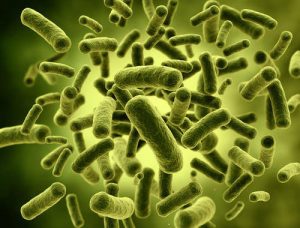
Best safe and secure cloud storage with password protection
Get Envato Elements, Prime Video, Hotstar and Netflix For Free
Best Money Earning Website 100$ Day
#1 Top ranking article submission website
These are the most friendly bacteria. They are naturally present in dairy products and are added to miso, tempeh, yogurt and other dietary supplements for better results. They produce vitamin-K, lactate and hydrogen oxide. In the human body, they are found in the oral cavity, intestine, vagina etc. This helps curb the overgrowth of other pathogens. In the vagina, these bacteria produce lactic acid that prevents fungal growth. They are used to treat diarrhoea too.Thus the microorganisms help strengthen the immune system.
Tobacillus acidophilus
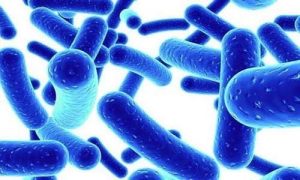 They belong to the genus of Lactobacillus and are acid loving bacteria. These are found in buttermilk, yogurt, sour cream and frozen desserts. They convert sugar and carbohydrates into lactic acid, and hence are called “lactic acid bacteria”. By lowering the pH and reducing the risk of growth of other organisms in the food through this process, they generate a fermented taste. This process is beneficial for people, as it prevents gastrointestinal infections.
They belong to the genus of Lactobacillus and are acid loving bacteria. These are found in buttermilk, yogurt, sour cream and frozen desserts. They convert sugar and carbohydrates into lactic acid, and hence are called “lactic acid bacteria”. By lowering the pH and reducing the risk of growth of other organisms in the food through this process, they generate a fermented taste. This process is beneficial for people, as it prevents gastrointestinal infections.
Lactobacillus reuteri
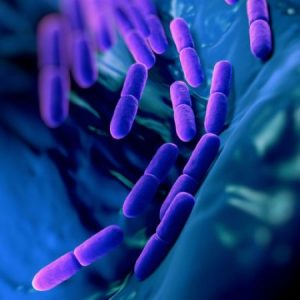
These are found in breast milk and gut flora. Milk products like yogurt and cheese are fotified with these.
Acidophilus bifidus
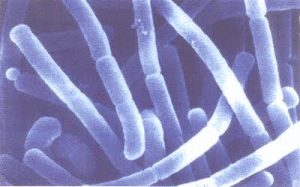 They produce lactic acid and hydrogen peroxide. They help curb the growth of pathogens. Some help reduce cholesterol levels by breaking down bile, thus restricting its re-absorption. They cleanse the blood stream by removing toxins and boost the immune system. They prevent the growth of hostile yeasts.
They produce lactic acid and hydrogen peroxide. They help curb the growth of pathogens. Some help reduce cholesterol levels by breaking down bile, thus restricting its re-absorption. They cleanse the blood stream by removing toxins and boost the immune system. They prevent the growth of hostile yeasts.
Escherichia coli 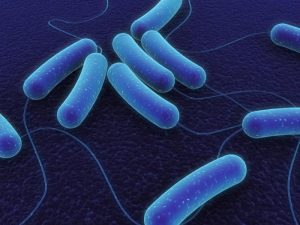 They are present in the intestine and are also known as “enteric bacteria”. Probiotic Escherichia coli Nissle 1917 used to treat bowel diseases like ulcerative colitis, Crohn’s disease, Chronic constipation, irritable bowel syndrome etc.
They are present in the intestine and are also known as “enteric bacteria”. Probiotic Escherichia coli Nissle 1917 used to treat bowel diseases like ulcerative colitis, Crohn’s disease, Chronic constipation, irritable bowel syndrome etc.
Streptococcus thermophilus
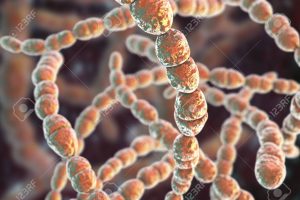
They are required for cheese making process. They are sometimes used to produce pasturized milk.
Streptococcus faecium 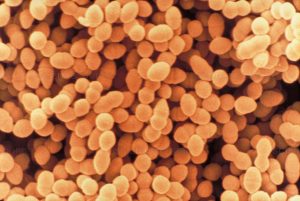 Both Streptococcus thermophilus & Streptococcus faecium help prevent diarrhoea. They are also used to treat diarrhoea.They help maintain the health of the digestive system.They help alleviate symptoms of nasal cavity infections, irritable bowel syndrome and baby colic. They even help manage symptoms of AIDS.
Both Streptococcus thermophilus & Streptococcus faecium help prevent diarrhoea. They are also used to treat diarrhoea.They help maintain the health of the digestive system.They help alleviate symptoms of nasal cavity infections, irritable bowel syndrome and baby colic. They even help manage symptoms of AIDS.
Bacteria that are beneficial for water, soil & plants
- In water some bacteria help purify water at swage treatment plants.
- In the soil, Streptomyces spp. help break down the organic fertilizers into nutrients which can be easily absorbe by the plants.
- Production of vaccines requires dead or weakened bacteria.
- Rhizobium ( soil bacteria) plays an important role in nitrogen fixation.
- Some beneficial bacteria break down the woody and tough tissues of jute, coconut hemp and flax.
- Bacteria are also important in the production of pure chemicals, which are utilized in agriculture or pharmaceutical industries.
- Scientists say that nearly fifty percent of the oxygen that is present in the atmosphere is produced by bacteria.
- Already we’re familiar with some Probiotics( good bacteria) which play lots of beneficial role. These probiotics are available in the form of capsules, powders or liquids but we should not use any probiotics without consulting doctor. However, natural in take of these bacteria through butter milk, yogurt, miso etc is always recommended.
In overall, it can be easily said that bacteria are more friendly than antagonistic.
Written by
Mahmuda Hossain Mim, 2nd Year, Dept. of Botany, University of Dhaka
Best safe and secure cloud storage with password protection
Get Envato Elements, Prime Video, Hotstar and Netflix For Free
 Plantlet The Blogging Platform of Department of Botany, University of Dhaka
Plantlet The Blogging Platform of Department of Botany, University of Dhaka
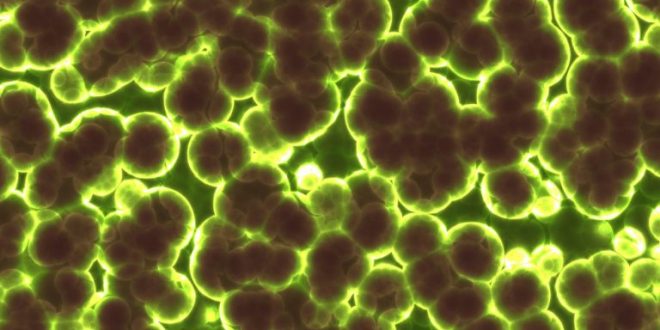



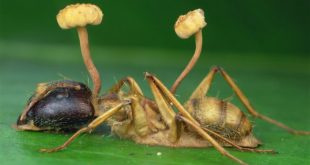
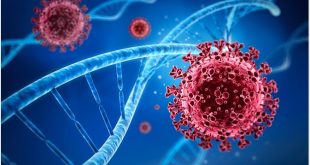
Interesting topic!! Nice to read